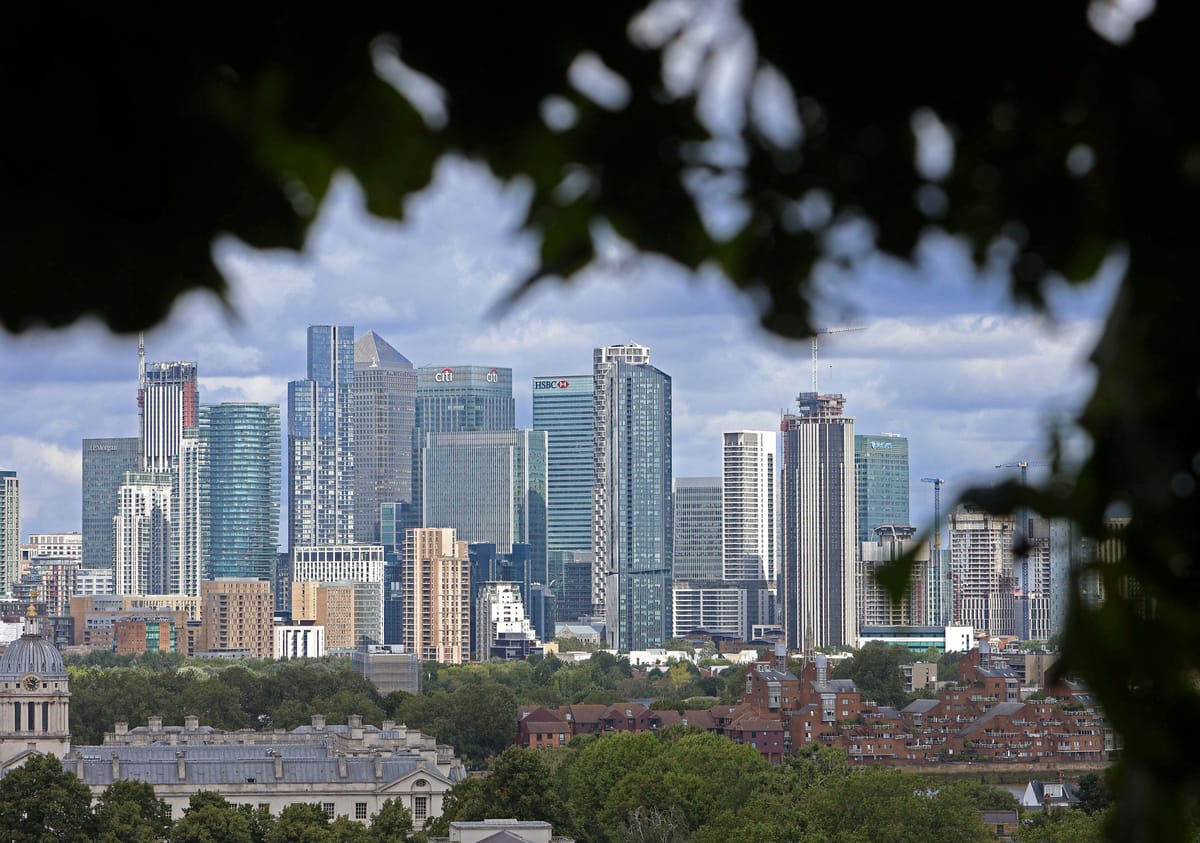Breaking down HSBC’s recent record earnings dimmed by a China bank hit
On Wednesday, HSBC released an earnings report detailing a record-high annual profit.

A few minutes every morning is all you need.
Stay up to date on the world's Headlines and Human Stories. It's fun, it's factual, it's fluff-free.
The backstory: HSBC is one of the biggest banks in the world, initially starting out in Hong Kong, with its headquarters now based in London. It has a big focus on business in Asia, which is where it makes most of its profit. In fact, its pivot to Asia has led to it selling parts or all of its business in other places in the world, including France, Greece, Russia and Canada.
Although China is still the world's second-largest economy, it's been facing a real estate crisis, a drop in manufacturing and slow economic recovery since the pandemic. This has led to losses for global banks doing business in the region, like HSBC and Standard Chartered. For example, Standard Chartered announced a credit impairment charge last year of US$294 million – and that included a US$186 million charge related to China's real estate sector.
The development: On Wednesday, HSBC released an earnings report detailing a record-high annual profit. Despite results coming in lower than analysts had predicted, its pre-tax profits sat at US$30.3 billion for 2023 – a 78% increase on the previous year. But, the company was hit by a US$3 billion charge on its 19% stake in China's Bank of Communications (BoCom). Afterward, HSBC's shares fell by 3.4% in Hong Kong and as much as 8% in the UK, which was the biggest price drop the company has seen since March 2020. The bank did say the charge came from a review of the value it had assigned to its BoCom stake and not any conversation with regulators.
As Europe's largest lender, HSBC said that it's approaching loan growth with caution in the first half of 2024 due to the slow economic growth and inflation in many countries. On the other hand, the company also announced a US$2 billion share buyback, an annual dividend of US$0.61 per share and a special dividend of US$0.21 per share in the first half of 2024 after it completes the sale of its Canada business.
Key comments:
"Our record profit performance in 2023 enabled us to reward our shareholders with our highest full-year dividend since 2008, three share buybacks last year totaling US$7 billion, and a further share buyback of up to US$2 billion," said HSBC's CEO Noel Quinn. "This reflected four years of hard work and the strength of our balance sheet in a higher interest rate environment."
"This scenario is not unique to HSBC; other banks, like Standard Chartered, have also faced significant impairments due to their Chinese exposures," wrote Neil Shah, executive director of content and strategy at Edison Group.




Comments ()